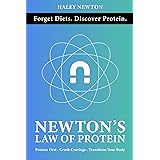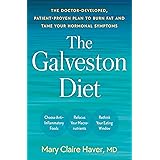Unlocking Sustainable Weight Loss: Beyond the “Diet” Mindset
For many individuals embarking on a health journey, the phrase “how to lose weight” often brings to mind restrictive meal plans, strict timelines, and a pervasive sense of deprivation. However, as the video above from Ra at Brix Fitness expertly highlights, achieving lasting weight loss and optimal health requires a fundamental shift in perspective. It’s not about quick fixes or temporary sacrifices; it’s about cultivating a healthier relationship with food and your body for the long run. Let’s delve deeper into these transformative tips and explore how you can build a sustainable path to well-being.
1. Ditch the Diet Mentality: Embrace a New Relationship with Food
The term “diet” has, regrettably, developed a negative connotation within the fitness industry. While technically referring to one’s habitual nourishment, it has come to signify temporary, often drastic, eating plans designed for rapid weight reduction. Such approaches frequently involve severe calorie restriction, elimination of entire food groups, or adherence to unsustainable food rules. The speaker’s personal experience of losing weight only to gain “120% of the time” back illustrates a common cycle of frustration that many people endure.
This cycle of restriction and rebound is not a failure of willpower but a design flaw in the “diet” approach itself. Human physiology and psychology are ill-equipped for prolonged deprivation. When food is arbitrarily labeled as “good” or “bad,” or when specific foods are forbidden, the desire for those forbidden items often intensifies. This can lead to feelings of guilt and shame when one inevitably “breaks” the diet, perpetuating a harmful cycle of self-blame and eventual abandonment of health goals. Instead of focusing on what you can’t have, the shift should be towards understanding nutrition and developing eating habits that genuinely support your body and long-term well-being. This involves researching, learning, and experimenting to discover a way of eating that is both enjoyable and conducive to your health objectives, allowing you to manipulate your intake based on your goals without feeling deprived.
2. Eliminate Timelines: The Project of a Lifetime
The desire to lose weight by a specific date – whether for a wedding, vacation, or other event – often sets individuals up for failure. While such short-term goals can provide initial motivation, they typically lead to unsustainable practices aimed at rapid results, such as extreme calorie restriction or excessive exercise. This intense pressure can foster an unhealthy relationship with food and exercise, making the entire process feel like a punishment rather than a journey toward better health.
True transformation, particularly when it comes to healthy weight management, is a lifelong endeavor. It’s a continuous project of learning, adapting, and integrating beneficial habits into your daily routine. By removing arbitrary timelines, you alleviate immense psychological pressure, allowing for a more patient and compassionate approach. This shift enables you to focus on making small, consistent improvements each day – an “inch closer” rather than giant, unsustainable leaps. These incremental changes, accumulated over months and years, are far more effective in building lasting habits that support long-term health and maintaining your ideal weight.
3. Honor Your Hunger: Fueling Your Body Wisely
A persistent myth in the world of weight loss is that hunger is a necessary component of the process. Many believe that feeling hungry signifies progress, mistakenly equating discomfort with success. However, as the video explains, intentionally enduring hunger is counterproductive and can sabotage your efforts. Once true hunger sets in, your body’s primal survival mechanisms activate, overriding conscious attempts at modest eating. This often leads to intense cravings, poor food choices, and overeating, as your body desperately seeks quick sources of energy like carbohydrates and sugars.
Instead, the goal should be to eat in a way that keeps you consistently satiated. This means prioritizing nutrient-dense foods, particularly adequate protein and complex carbohydrates, which provide sustained energy and help regulate blood sugar levels. Protein, for instance, is known for its high satiety factor, helping you feel fuller for longer. By understanding your body’s signals and providing it with consistent, quality fuel, you can avoid extreme hunger, make more deliberate food choices, and prevent the judgment-clouding effects of intense cravings. Learning to listen to your body’s cues and responding with nutritious food ensures you are always properly fueled, making your weight loss journey much more manageable and enjoyable.
4. Reject the Restrictive Mindset: Embrace Choice, Not Deprivation
Human psychology dictates that we often desire what we perceive as forbidden. When we approach healthy eating with a restrictive mindset, telling ourselves “I can’t have that,” it inadvertently amplifies the allure of those very foods. This negative framing can foster feelings of deprivation, rebellion, and eventual binge eating, undermining any progress made. The internal narrative shifts from empowerment to limitation, making sustainable change difficult.
The key lies in reframing your perspective: instead of “I can’t have cake,” try “I am choosing not to have cake because it doesn’t align with my current health goals.” This subtle but powerful shift from restriction to choice reclaims your agency and puts you in control. It acknowledges that the food is available, but you are consciously deciding what to consume based on your objectives. This mindset fosters a sense of empowerment rather than deprivation. Over time, practicing this choice-based thinking helps to naturally diminish cravings for less nutritious foods and build discipline. It cultivates a healthier relationship with food where indulgence is an intentional choice, not a reaction to perceived prohibition, gradually reshaping your eating patterns for improved body composition and overall well-being.
5. Your Body as a Complex Machine: Fuel for Optimal Performance
Imagine your body not as a battlefield in the fight against weight, but as an incredibly complex and delicate machine designed for optimal performance. Just like a high-performance vehicle requires specific types of fuel, regular maintenance, and the right components to run efficiently, your body demands precise nutrition to function at its best. Feeding it processed, nutrient-poor foods is akin to putting low-grade fuel in a luxury car; it will run, but not optimally, and eventually, performance will suffer.
Educating yourself on the intricate connection between nutrition and bodily function is paramount. Understanding how macronutrients (carbohydrates, proteins, fats) provide energy and building blocks, and how micronutrients (vitamins, minerals) facilitate countless biological processes, empowers you to make informed choices. When fueled properly, your body doesn’t just manage weight more effectively; it experiences a cascade of positive effects: sustained energy levels, improved mood, enhanced cognitive function, better sleep quality, increased strength, and even a more robust immune system. This holistic approach to nourishing your machine ensures that every system operates harmoniously, making sustainable weight loss a natural byproduct of overall health rather than a singular, isolated goal.
Building Your Sustainable Health Blueprint
The journey to lasting weight loss is deeply personal and unique to each individual. It moves far beyond superficial dieting and quick fixes, instead focusing on fundamental shifts in mindset and behavior. By adopting the principles discussed – rejecting the diet mentality, embracing a long-term perspective, honoring your hunger, choosing wisely over restricting, and fueling your body as a sophisticated machine – you lay the groundwork for a truly sustainable and fulfilling path to health. This isn’t just about shedding pounds; it’s about cultivating a vibrant life where you feel strong, energized, and confident in your choices, making the process of learning how to lose weight an empowering experience for the rest of your life.











